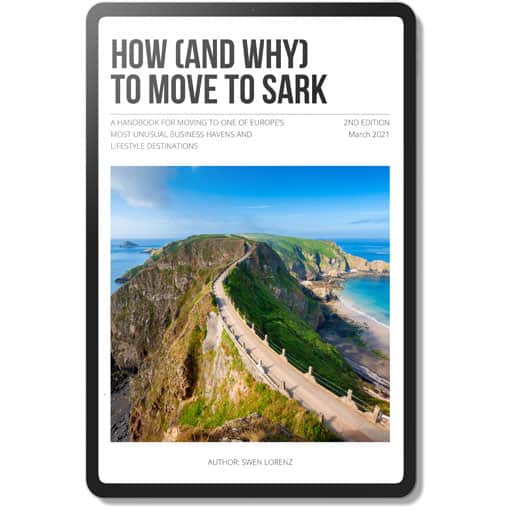My recent blog post about my alcohol consumption left some readers wondering: “How can a serious entrepreneur, board member, and consultant be so open and public about his experiments in areas that most anyone else would consider a private matter?”
You will already know of all the arguments in favour of not posting too much personal information:
- Anything you put onto the web will remain in the public domain from now until eternity. As life progresses, you will change as a person, and what you release now might not accurately reflect you anymore at a future date, or even be detrimental to you.
- Competitors and other foes can use this information against you, if only through something as simple as selective quoting.
- Any personal information you publish – whatever it may be – will inevitably lead to someone thinking of you as a fool because of X, Y or Z.
All good arguments, of course.
Though all of them, ultimately, irrelevant.
Let me explain the “Why” as well as the “How” you can benefit from this when building your own business, whether that’s a 500-employee firm or a professional practice consisting of no one but yourself.
The seismic shift in transparency
The connectivity provided by social media channels and other Internet platforms is making virtually anything you or your company does a matter of public record.
This might not always be the case immediately, i.e., you can temporarily get away with all sorts of behaviour and not get exposed for a long time.
But in the end, outsiders can (and often, will) easily see inside:
- Have you asked your marketing team to spin a few overstated stories about your products and services? Public records about the veracity of your claims will quickly appear on and spread across the Internet. You just can’t get away anymore with spinning – or changing – a story. What you gain in the short-term will be vastly outdone by what you lose by damaging your long-term prospects.
- Are you employing a family member whose incompetence is upsetting the other employees and who only remains in the job because of family connections? Wait for that to eventually turn up on Glassdoor, the anonymous employee review website, and see what it does to your company’s ability to hire top talent. No self-respecting talent will want to join such a firm and you’ll be doomed to hiring the dross of the labour market.
- Do you think that despite your semi-public personality, you can get away with bad behaviour involving illegal drugs, sex harrassment, or other niceties? Have a word with Harvey Weinstein and The Weinstein Company about the #MeToo movement. Wait, you don’t have a semi-public personality yet? Good luck being successful in tomorrow’s world of robots and automation without developing a valuable personal brand that distinguishes you.
The connectivity provided by social media channels and other Internet platforms is making virtually anything you or your company does a matter of public record.
Be of no doubt: 2018 heralded an era where toxic behaviour of any kind will not remain secret anymore.
Those who have been mistreated in some way can now share their story; corroborate and organise in ways that you had not thought possible, and possibly even apply the wrecking ball to your business or your life.
It’s a sobering thought that secrecy is all but history.
Once you have digested the fact, you can start to think how to not only prevent wrecking balls from heading your way but how to benefit from this new world we have entered.
Consumers value transparency and authenticity
Here is an angle for looking at all this as an opportunity.
Today’s consumers have a dramatically more perceptive radar for BS than any generation of consumers before them.
The consumer has never been smarter and has never had more access to information.
Many (maybe even, most) large companies have not yet sufficiently caught on to the fact that consumers demand both transparency and authenticity. They do so even if it means being exposed to some facts that they don’t like. It enables them to make the best possible decisions in a world that everyone knows is far from perfect.
The value you can derive from being honest with your clients and consumers is much higher than the inevitable percentage of consumer attention you lose because they spot something that isn’t to their liking.
There’ll always be some that use the additional information you put out to the world to your disadvantage.
But right now, with most companies not yet having caught on to the new reality, there’ll be an even greater number of consumers who will appreciate the transparency and authenticity.
Or as Gary Vaynerchuck, the inimitable (and recommended) media and branding guru from New York, once said: “Transparency is the currency of our time.”
Practice, reveal, do
None of this is to say my article about changing my drinking habits will sell any additional products.
I primarily published that particular story as a practice run for the kind of radical transparency I write about in this article.
As Gary Vaynerchuck, the inimitable (and recommended) media and branding guru from New York, once said: ‘Transparency is the currency of our time.’
Changing your behaviour to fit the age of transparency and authenticity takes time, efforts, and skills. By writing and publishing the occasional personal story, I am honing my skills and my awareness for this subject.
Nothing is as good a teacher, as doing something.
What’s more, not everything needs to lead to results immediately. My writing is always also an investment into myself; into my skill to put my thoughts into order, and my ability to reason, analyse and convince.
Anything you write about yourself will feed into your personal branding, help shape you as the leader or owner of a business, and impact the success of everything you do.
We are witnessing a watershed moment for transparency and authenticity. I strongly believe that if you ride the wave, it will ultimately pay much bigger dividends than if you tried to remain in the past.
If you enjoyed this, you might also find the following articles useful:
Want to print this article? Open a printer friendly version.
Did you find this article useful and enjoyable? If you want to read my next articles right when they come out, please sign up to my email list.
Share this post:


